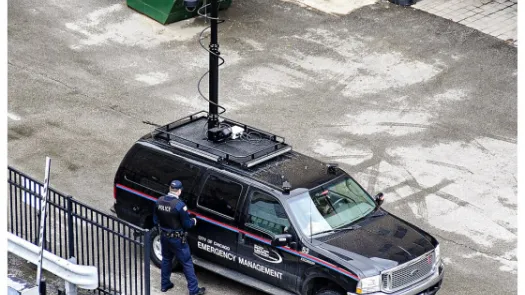
Victory at the High Court against the government's use of 'general warrants'
In another victory for the rule of law, the UK High Court has held that the security and intelligence services cannot rely on non-specific warrants - otherwise known as general warrants - to authorise wide-ranging property interference and certain forms of computer hacking.
We won our judicial review challenge to a 2016 decision by the Investigatory Powers Tribunal (IPT). The UK High Court has held that the security and intelligence services can no longer rely on 'general warrants' to interfere with property, including computers.
- A major High Court ruling today re-asserts 250-year-old aversion of the common law to the use of 'general warrants'.
- The ruling means the intelligence agencies can no longer rely on 'general warrants' for certain forms of property interference, including hacking.
- In the digital age, where a general warrant could easily enable spying on hundreds, thousands or even millions of people, this is a major victory.

Today, the UK High Court has quashed a decision by the Investigatory Powers Tribunal (IPT) and held that section 5 of the Intelligence Services Act (ISA) 1994 does not permit the issue of general warrants to authorise property interference and certain forms of computer hacking.
The Court referred to cases dating back to the 18th century, which demonstrate the common law’s insistence that the Government cannot search private premises without lawful authority even in the national security context. Because of their “unlawful delegation of authority” from the Secretary of State to the officer/agent, general warrants violate individuals’ right not to have property searched other than by the authority of the law, and are thus illegal. As the Court emphasised:
The aversion to general warrants is one of the basic principles on which the law of the United Kingdom is founded. As such, it may not be overridden by statute unless the wording of the statute makes clear that Parliament intended to do so [para 48]
The adaptation of these 250-year-old principles to modern government hacking and property interference is of great significance. The Court signals that fundamental constitutional principles still need to be applied in the context of surveillance and that government agencies cannot circumvent traditional protections afforded by the common law.
The case stems from a 2016 decision by the IPT, the UK tribunal tasked with examining complaints against the UK intelligence services, that the UK government could lawfully use sweeping ‘thematic warrants’ to engage in computer hacking of thousands or even millions of devices, without any approval by a judge or individualised reasonable grounds for suspicion.
Thematic warrants are general warrants covering an entire class of property, persons or conduct, such as “all mobile phones used by a member of a criminal gang”, without specifying the names or locations of the members.
Following PI’s landmark UK Supreme Court win in 2019, in which the Supreme Court held that decisions of the IPT cannot escape judicial review, PI challenged the aforementioned 2016 decision on public law grounds.
Today’s judgment underlines the importance of judicial review of IPT decisions. Without today’s ruling, the IPT would have been allowed to further develop a body of law contrary to fundamental constitutional rights.
If not appealed, today’s judgment will go back to the IPT for execution.
Caroline Wilson Palow, Legal Director at Privacy International said:
“Today’s victory rightly brings 250 years of legal precedent into the modern age. General warrants are no more permissible today than they were in the 18th century. The government had been getting away with using them for too long. We welcome the High Court’s affirmation of these fundamental constitutional principles.”
Background Information:
- In 2014, following the Edward Snowden disclosures, it was revealed that the UK security and intelligence services use hacking techniques in bulk to gain access to potentially millions of devices, including computers and mobile phones.
- Privacy International challenged these mass hacking practices in the IPT, which hears claims against the UK intelligence services. During the proceedings, the government asserted that it could rely on broad ‘general warrants’, not based on reasonable individual suspicion, to conduct hacking. The UK Government even argued that it would be lawful in principle to use a single warrant to hack every mobile phone in a UK city. In February 2016, the IPT held that this was lawful.
- In May 2016, Privacy International challenged the IPT’s decision in the UK High Court. The Government’s response was to argue that Tribunal decisions were not subject to judicial review because the jurisdiction of the court was ousted by a provision of the Regulation of Investigatory Powers Act (“RIPA”) 2000.
- In a historic victory for PI, in May 2019, the UK Supreme Court ruled that the Investigatory Powers Tribunal’s (IPT) decisions are subject to judicial review in the High Court.
- Since 2018, some of the UK’s hacking powers which were originally the subject of this case are now governed by the Investigatory Powers Act 2016, and therefore no longer before the court. But additional property interference and hacking powers continue to be authorised under the statute at issue, section 5 of the Intelligence Services Act 1994. These were the subject of this case. The hearing took place on 8 and 9 December 2020.
- Privacy International were represented by Mark Scott of Bhatt Murphy Solicitors and by Ben Jaffey QC and Tom Cleaver of Blackstone Chambers.



